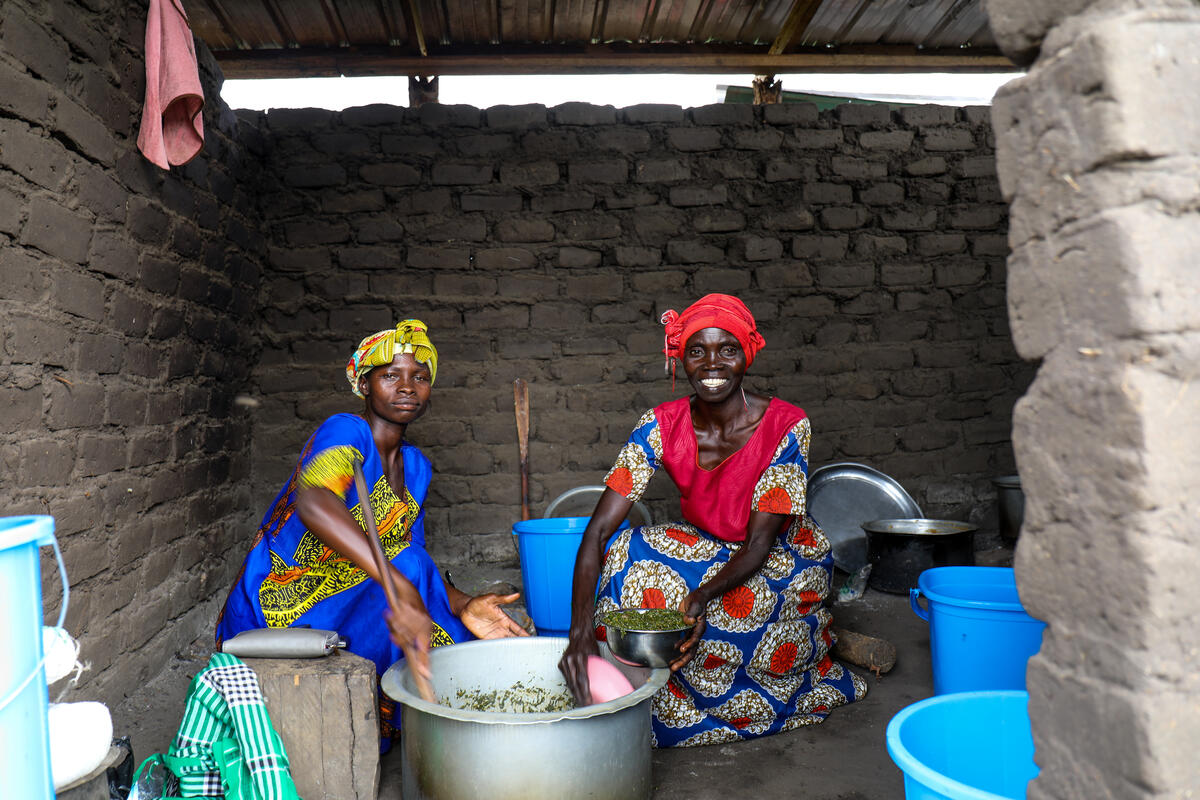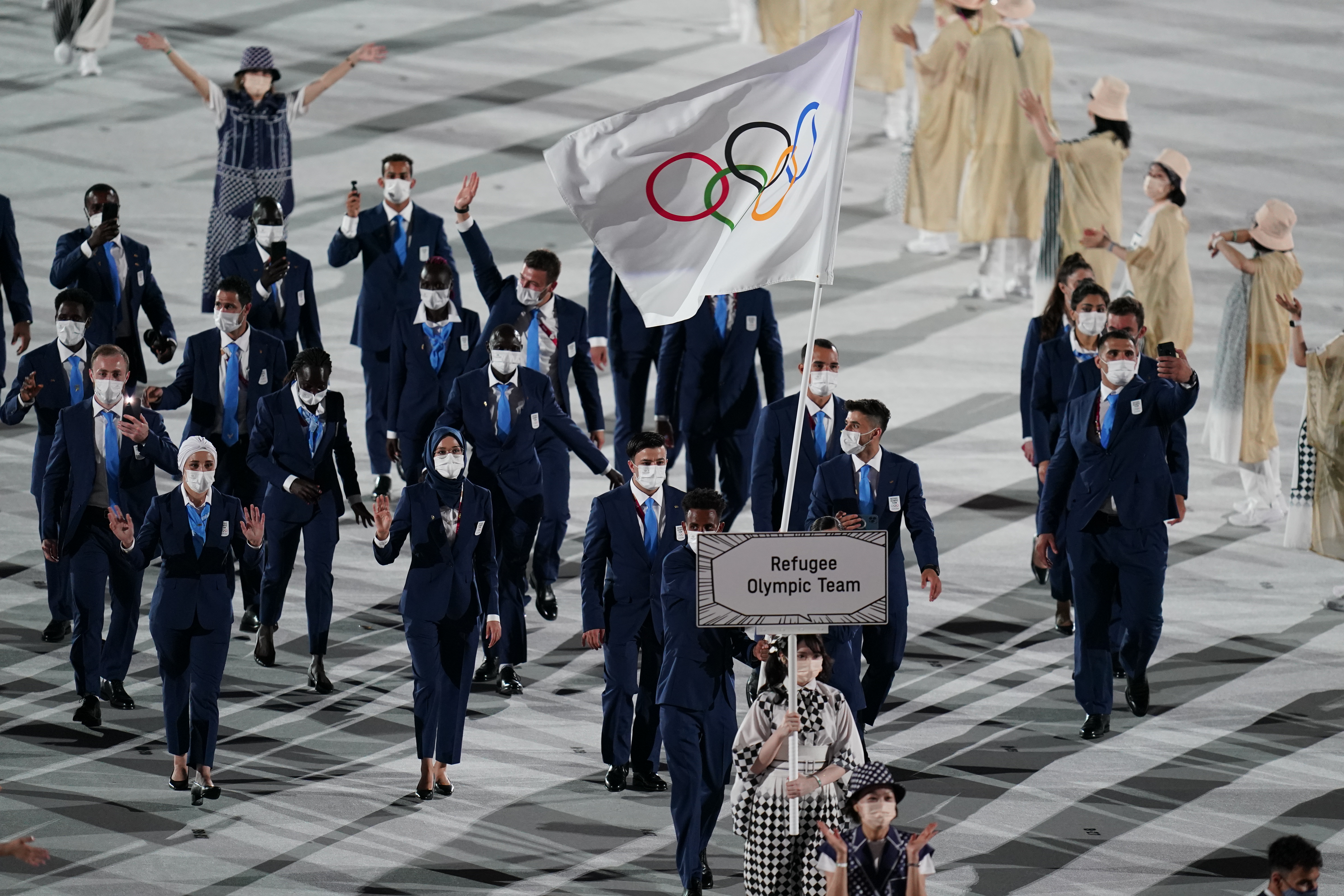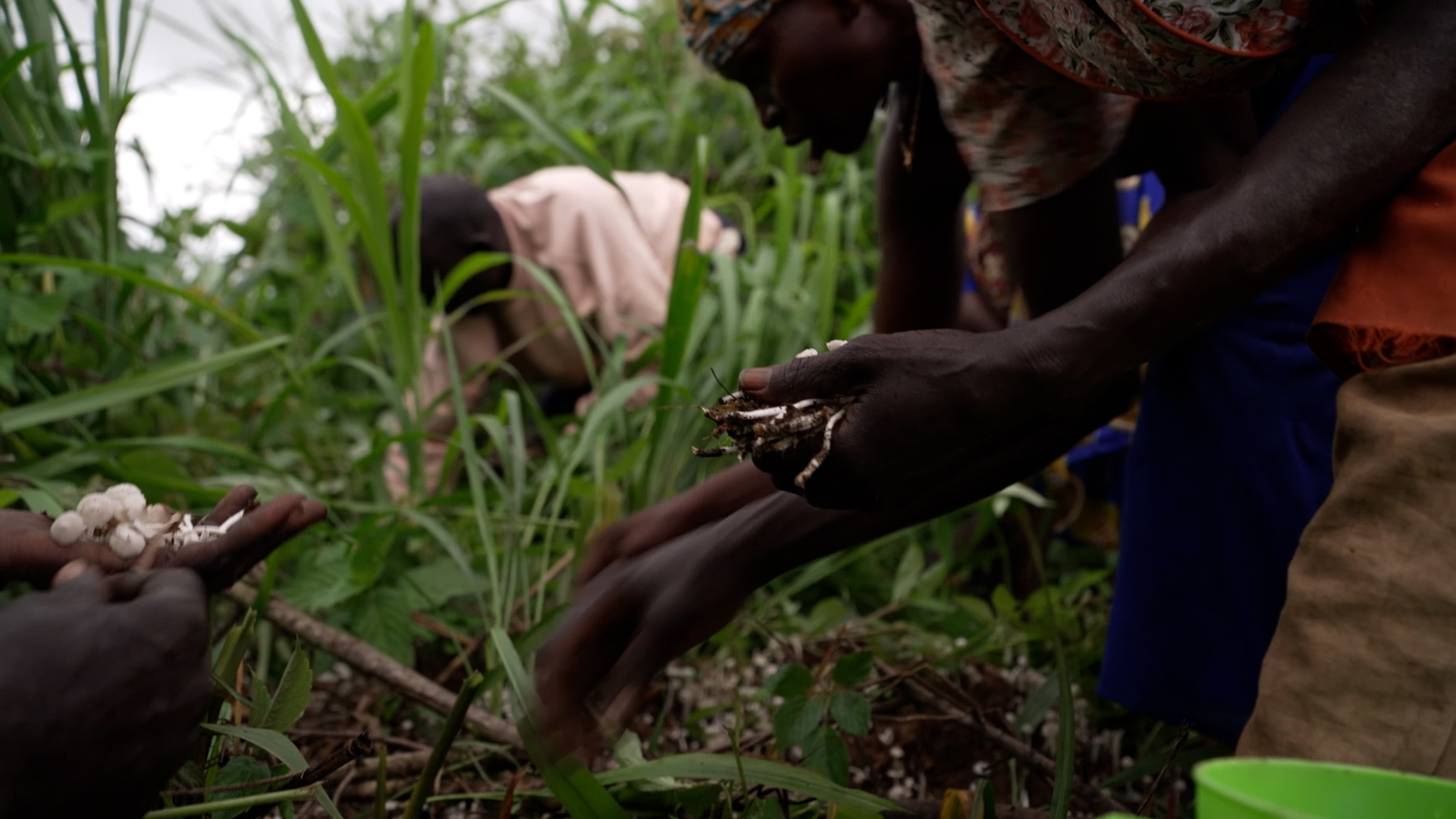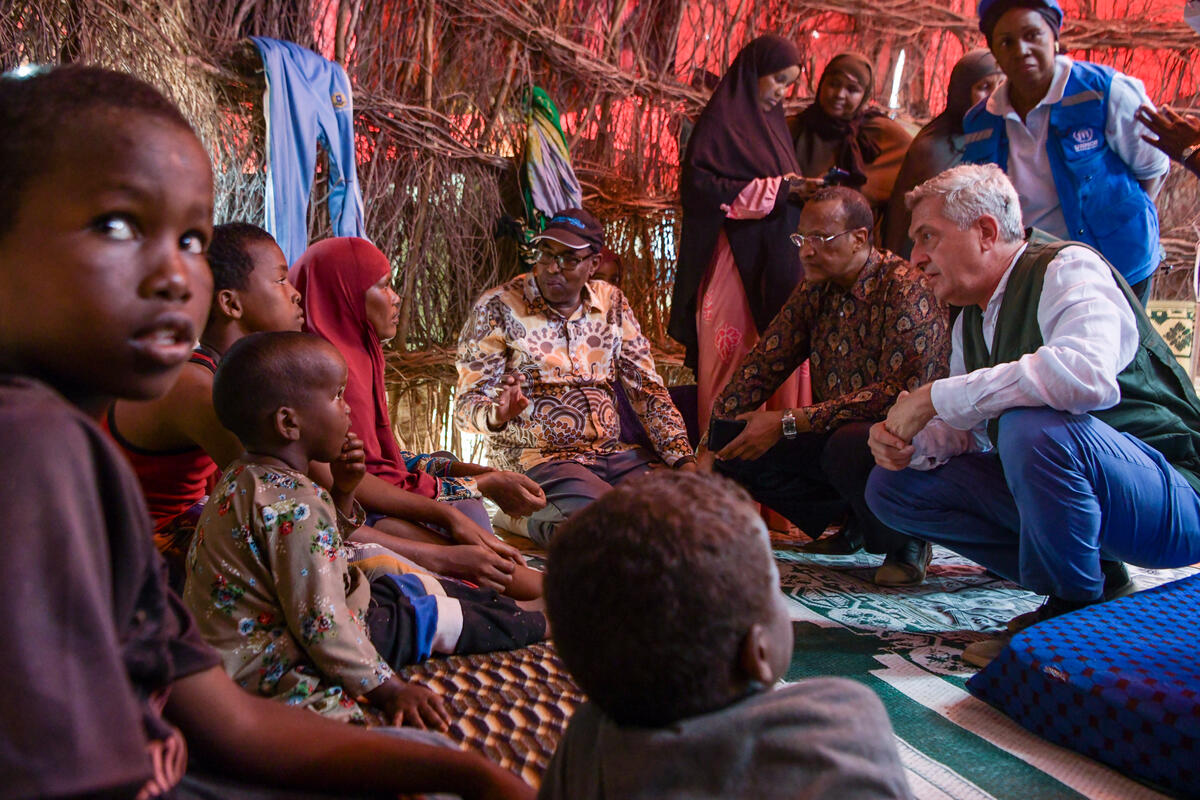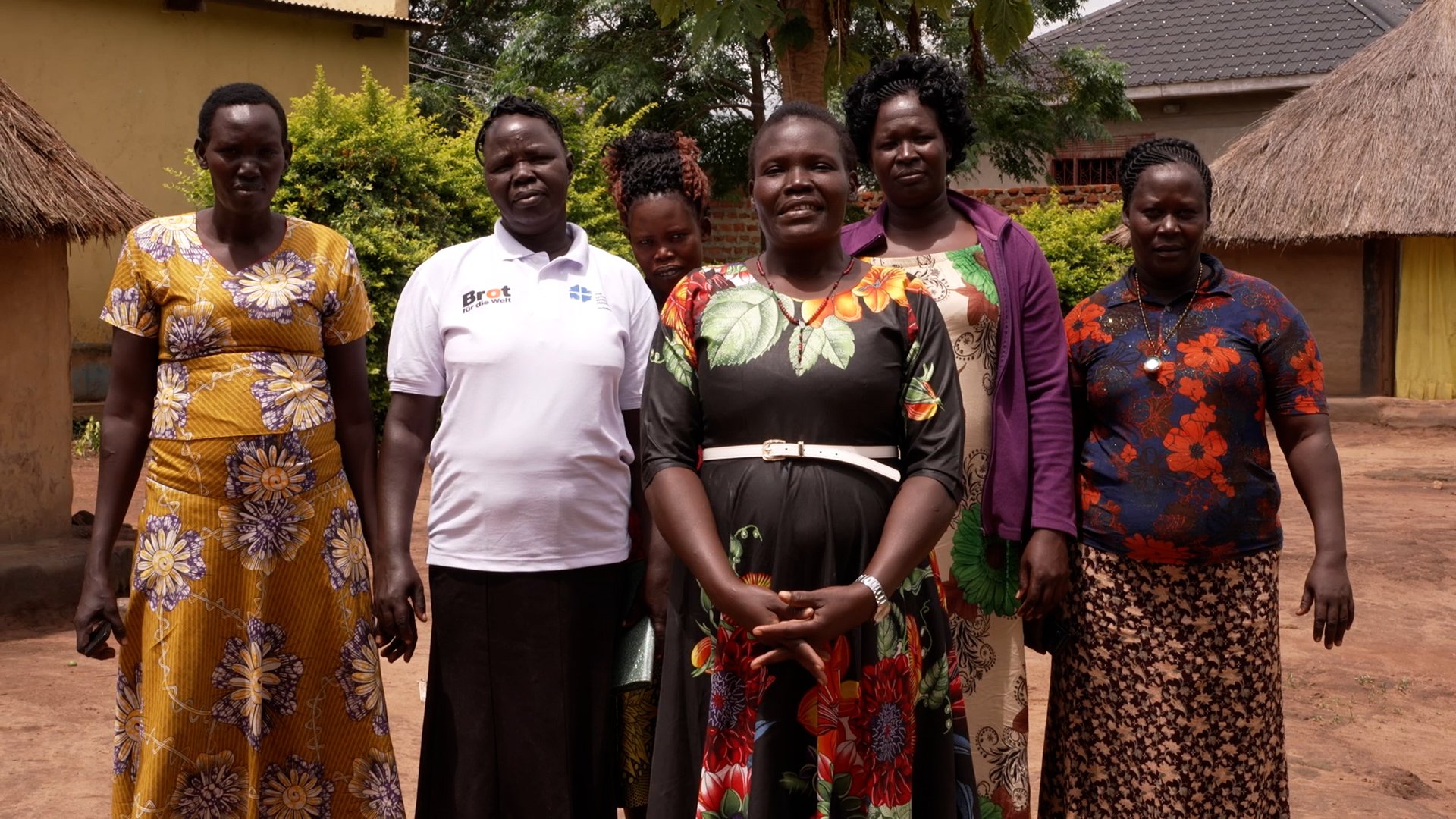UN refugee chief highlights key role for peacemakers
UN refugee chief highlights key role for peacemakers

GENEVA – UN High Commissioner for Refugees Filippo Grandi praised the “political courage” of Colombian President Juan Manuel Santos, who today won the Nobel Peace Prize, and welcomed the recommendation of António Guterres to his new role as the “top peacemaker in the world.”
Speaking at the conclusion of UNHCR’s annual Executive Committee meeting in Geneva, Grandi praised the extraordinary commitment by Santos’ government, the left wing Revolutionary Armed Forces of Colombia (FARC), and civil society to bring peace to the South American country, which he visited earlier this year.
“What I saw on the ground was extraordinary commitment by government, by the FARC and by civil society in particular to make this work,” Grandi said of the peace deal, which was narrowly rejected by Colombians in a referendum on Sunday.
Only through the peace process can internal displacement in Colombia be addressed and resolved.
“I am sure that having seen that commitment, the present complicated political impasse will be overcome and President Santos, his government and his fellow actors in the peace agreement will stay the course and bring it forward,” he said.
Grandi noted that, at around seven million, Colombia had the largest population of internally displaced people in the world, and said that it is “only through the peace process that this can be addressed and resolved. So again, my heartfelt congratulations for a peace process that essentially recognizes political courage.”
In his remarks to reporters at the Palais de Nations on Friday (October 7), Grandi said he was also “greatly encouraged” by the recommendation of former UN refugee chief António Guterres as the next United Nations Secretary-General.
During his 10 years heading UNHCR, Guterres managed some of the world’s biggest refugee crises, including the displacements of millions of people from Syria, Iraq and South Sudan.
“It is wonderful that the top peacemaker in the world, the top diplomat in the world – whose main task will be really to address these terrible conflicts that plague our world – is somebody who knows so well, and feels so much human empathy for, the consequences of those wars.”
The wide-ranging news conference marked the conclusion of the annual meeting of representatives from 98 states that make up the UNHCR’s Executive Committee.
In that forum, Grandi called for greater responsibility sharing by rich countries to provide effective responses to the record displacement caused by wars and persecution worldwide.
He noted that the majority of the world’s 65.3 million forcibly displaced people – many uprooted by wars in countries including Syria and South Sudan – are currently hosted by poorer nations, many of them their neighbours.
"Poor countries need more of the rich world to share their responsibilities."
“Those poor countries need more of the rich world to share their responsibilities, in different ways – through more financial contributions, through more resettlement and other legal pathways, helping find more solutions for these refugees,” Grandi said.
The four-day meeting ended late on Thursday. In his concluding remarks, Grandi stressed that it is absolutely critical that a “fundamental commitment to protection remains as the central pillar of” UNHCR’s engagement, “even as we redouble our efforts in search of more robust, systematic and comprehensive approaches.”
He highlighted the key commitments made in the New York Declaration adopted by 193 UN Member States last month, and said UNHCR would now seek to apply the Comprehensive Refugee Response framework with “urgency, responsibility and resolution.”
“The framework has huge potential – for a more predictable, systematic, better resourced, more connected response, shaped by protection principles and standards – provided that the commitment and political will that has been articulated over the last few weeks can now be translated into concrete action.”
To meet these challenges, the High Commissioner set out in a keynote address several core areas of strategic focus to guide his organization over the next five years, which he noted were supported by the forum.


